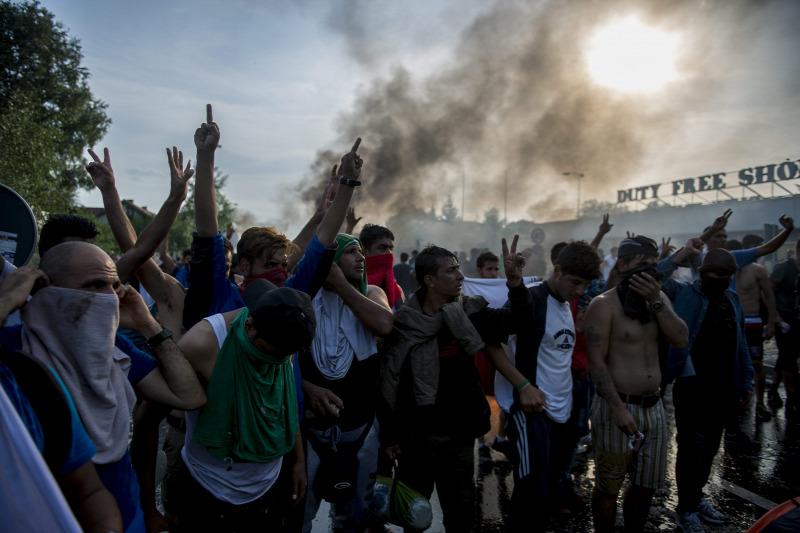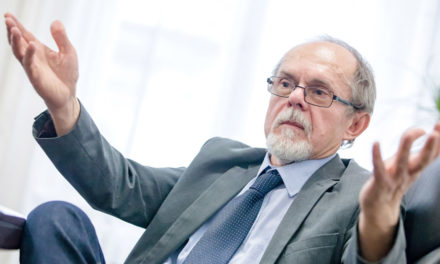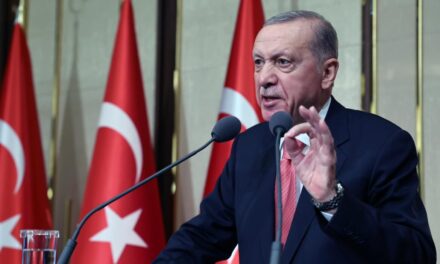According to the relevant literature, in Western European societies of the late 20th and early 21st centuries, migration and diversity are still seen primarily as problems, and in particular as "integration problems". In this context, the warning against the formation of so-called ghettos ("migrant neighborhoods", "residential neighborhoods with a high proportion of foreigners") played and still plays a central role. To this day, city politicians associate the danger of disintegration and social tensions with the dense coexistence of migrants or groups of migrants.
According to the latest Brussels draft, each EU member state would be held legally responsible for a certain number of migrants: those member states that refuse to accept illegal migrants and refugees arriving in the EU on an ad hoc basis must pay around 20,000 euros (approx. HUF 7.5 million) per person to pay, on the part of Poland they directly mention a "fine" in this connection (the proposals originally ranged from 10 thousand to 22 thousand euros). According to the decision, Hungary will also have to help the host states with equipment or personnel. The member states will be obliged to prove an (arrival) "connection" (connection rule) with the safe third country to which the migrants can be resettled, but this connection can in principle be determined by the member state (in the case of Italy, for example, Tunisia). At the same time, the only hope for Hungary - if the practice is realized - is how it can enforce the relationship rule in the direction of third countries that are considered safe. In addition, the Council's quota decision also affects the essential issue of member state sovereignty, according to the practice of the Hungarian Constitutional Court, since the composition of the population is one of the matters of reserved sovereignty. This is supported by the fact that the freedom of establishment prevails among the member states, but each member state, in possession of its sovereignty, has agreed or will agree to this in the future when adopting individual accession treaties. This consent also extends to Member State decisions made in the field of asylum and immigration policy due to the delegated powers.
Although the body of heads of government and state, the European Council, does not have general legislative powers, it functions as a strategic and crisis-solving body, and designates the strategic directions of EU policy.
The above-mentioned draft decree in refugee affairs envisages that, through an EU distribution mechanism, the illegal migrants themselves or the people smugglers who transport them to Europe will essentially decide who will live in Europe. The primary source of long-term problems is the uncontrollability of third-country persons already upon entry into the EU, and the actions related to and benefiting from this (e.g. human smuggling, human trafficking, organized crime, production of false travel and identity documents, black economy growth, corruption, etc.). Short-term effects can occur in financial and security terms as well. Regarding the complexity of the first area, we can work mainly on the basis of estimates, according to a recent German report, the state plans to spend 27 billion euros on migration, and according to a French report from March, immigration costs 20-33 billion euros annually to France, which is also considered an immigrant country. At the level known from the French press, the economic and agricultural damage caused by migrants can already be mentioned among the security risks, as can the continuous sexual abuse by immigrants in Germany and Austria, for example. Since the latest draft of the Council's migration regulation mentions the term absconding in several places in connection with relocated third-country nationals, we must also mention the risk of escaping from reception centers. In this context, it is possible to mention the statistically verifiable increase in crimes against property in the environment of open camps based on numerous Greek examples.
According to the research, the risk in the health sense should not be neglected either, which is practically a complete taboo topic in Brussels. In crowded reception centers and migrant ghettos, in addition to the country of origin, physical and mental stress and poor living conditions are also associated with respiratory infections, primarily influenza, respiratory synthetic virus, adenovirus and parainfluenza virus infections. Refugees and immigrants may be more vulnerable to infectious diseases at their places of origin, transit and destination because of their exposure to infection, lack of access to health care, interrupted care and poor living conditions. A significant number of refugees and immigrants living with HIV in regions classified as high-risk acquire the infection after arriving in a new country. Refugees and immigrants are diagnosed later in their HIV infection. Hepatitis B and C virus infections are more common in refugees and immigrants who come from countries where the virus is endemic, but the prevalence of these infections among refugees and immigrants varies across Member States in the region. Tropical and parasitic infections that are not normally seen in Europe may enter the region with endemic areas, but they also pose a threat to travelers to that area, as well as refugees and migrants and their descendants. The people flooding Europe en masse come from a completely different culture, from a world that is extremely intensely influenced by religion, and where the authorities use the teachings of Islam mostly to justify their own infallibility. Because they know very well that it is possible to control the masses with Islamic slogans, saying that the precepts of the faith are indisputable. Today we are at a point where Sharia courts operate parallel to the local justice system in German and French cities, and Muslim judges can outlaw crimes even before they are brought before the authorities of the host state. As early as 2011, there were about seven hundred such Muslim zones in France, in which French law was "overruled" and where the local police no longer dare to set foot.
The legal system of the member states is often of secondary importance in this matter. Let me give a specific example from July 2020, when the European Court of Human Rights issued a damning judgment against the French state, saying that by refusing to provide assistance to homeless "refugees", France violated the international convention on the prohibition of torture and inhuman or degrading treatment . Through such and similar cases, pressure can also be exerted on the French president, who even attempted to loosen the Visegrad Four alliance a few years ago.
In the specific case, the five asylum-seeking (i.e., not yet refugees in the "Geneva" sense!) applicants of Afghan, Russian, Iranian and Georgian citizenship turned to Strasbourg after "the French authorities refused them the financial support to which they are entitled under the laws of the country would have been", so they were "forced into inhumane and humiliating conditions, deprived of the basic means of subsistence".
The reasoning of the board's verdict is a clear example: according to the wording of the verdict, the people involved lived without shelter and access to health services, and without livelihood opportunities for several months, in constant fear of being attacked or robbed. The decision also damages the fact that three of the five plaintiffs only received temporary support after a long time, and - according to the court - they were given too short a deadline to register their asylum application, so they were unable to obtain the necessary documents for registration. The European Center for Law and Justice (ECLJ), also operating in Strasbourg, has previously conducted several researches on the subject. According to this, twenty-two of the judges were in direct contact with seven organizations that can clearly be considered Soros-financed (the organizations concerned also benefited significantly from the more than 30 billion dollars invested by György Soros in the Open Society Foundation since the mid-1980s).
From the ECJL's researches and analyses, a picture emerges of a speculator billionaire who, behind the guise of a benevolent philanthropist, actually takes his investments in a very pre-calculated way, mainly to countries where local conditions and the environment are expected to help repay the invested subsidies. The consequence of this way of thinking is that by keeping the ECtHR under control, it wants to enforce its geostrategic interests, as a quasi-state over the heads of individual states. In the last decade, therefore, not too surprisingly, the following countries can be mentioned among the countries from which judges supported by the Open Society Foundations (OSF) have joined the ECtHR: Bosnia-Herzegovina, Albania, Bulgaria, Croatia, Hungary, Latvia and Romania, i.e. the Soros wants to - in a decisive way - influence the future of Europe through the professional orientation of judicial experts from the Central Eastern European and Balkan regions, which are important from the point of view of migration and continental security policy.
In recent years, the situation in the immigrant countries has rather worsened, which may rather induce the fact that the number of Hungarians rejecting the migrant quota has also increased in the recent period. According to a report by the Office for Democratic Institutions and Human Rights (ODIHR), in 2021 there were 589 anti-Semitic, 1,387 anti-LGBT and 213 anti-Muslim hate crimes in France, and 857 anti-Christian such acts were reported. The latter occurred four times more often than attacks against Muslims, and the number of anti-Semitic prejudice crimes was almost three times higher than the number of crimes against Muslims. also clearly indicates that today in Western Europe, Christian and Jewish religious groups are increasingly exposed to the risk of verbal and often raw, physical violence, and the strengthening of this tendency may also be related to the fact that, over the past decades, a significant number of immigrants - among them people of Muslim religious and cultural background - arrived in these countries. The cases and the weight ratios typical in Western Europe - with regard to the individual social groups involved - indicate the need to make serious substantive efforts beyond the statistical facts to uncover the social and cultural causes and risks, and in appropriate cases, for example, the internal affairs, migration - and for the necessary and timely review of security policies.
Source: alatorvenyblog.hu
Cover photo: MTI/Tamás Sóki













